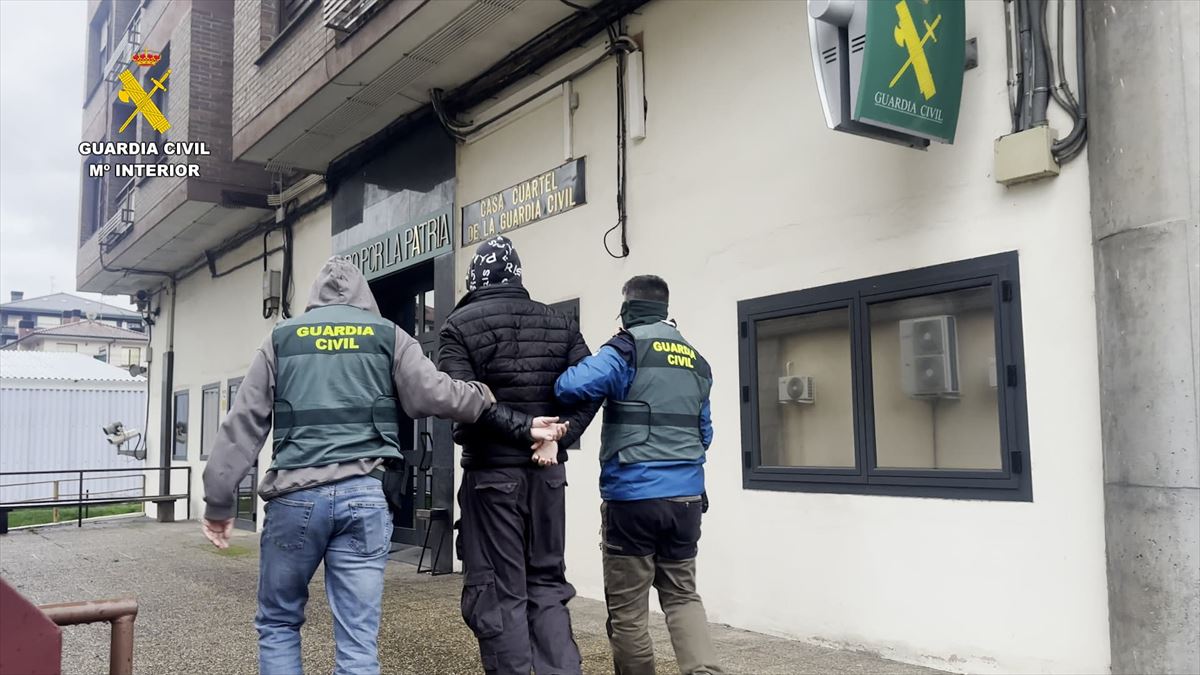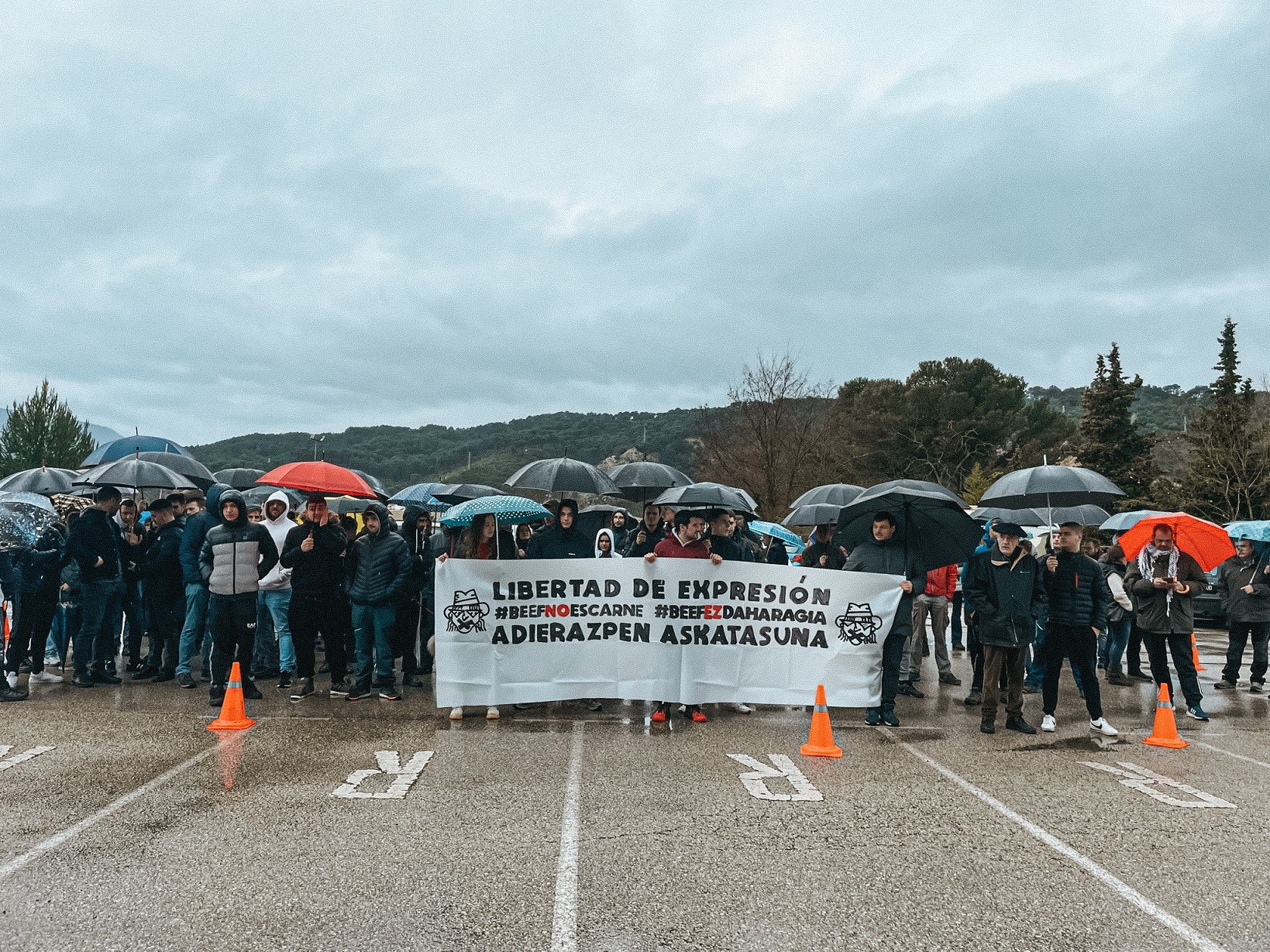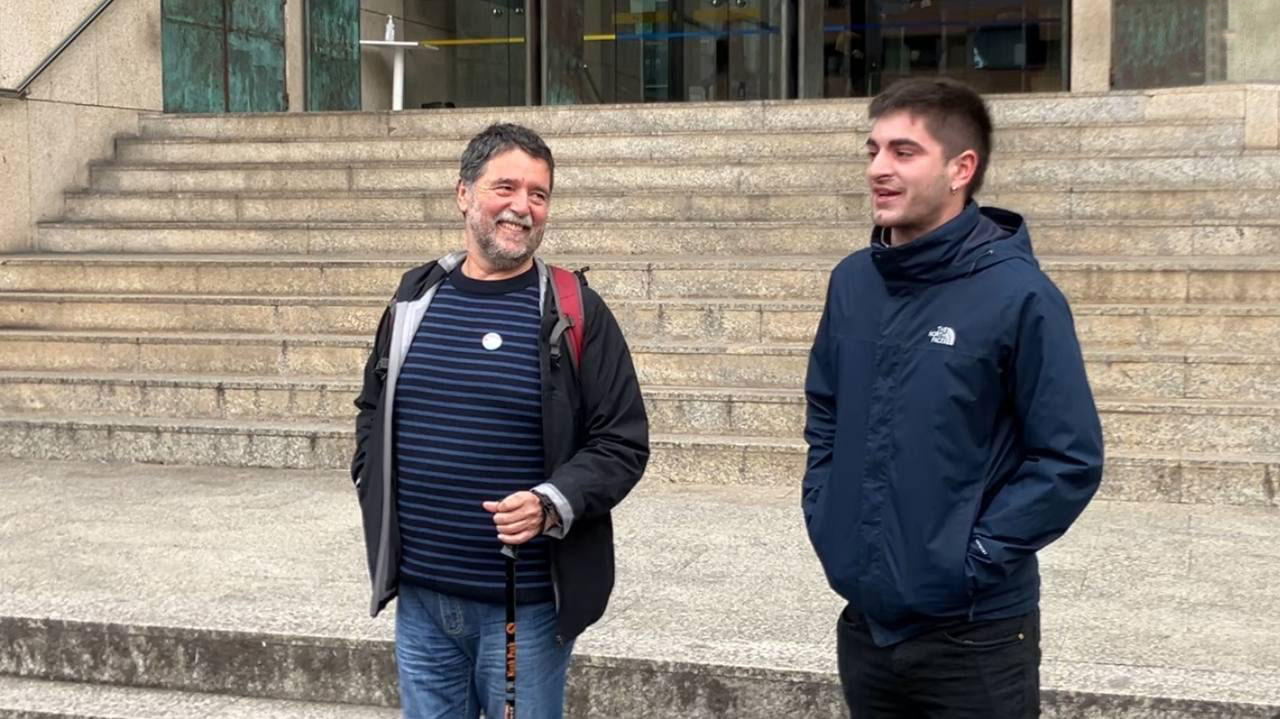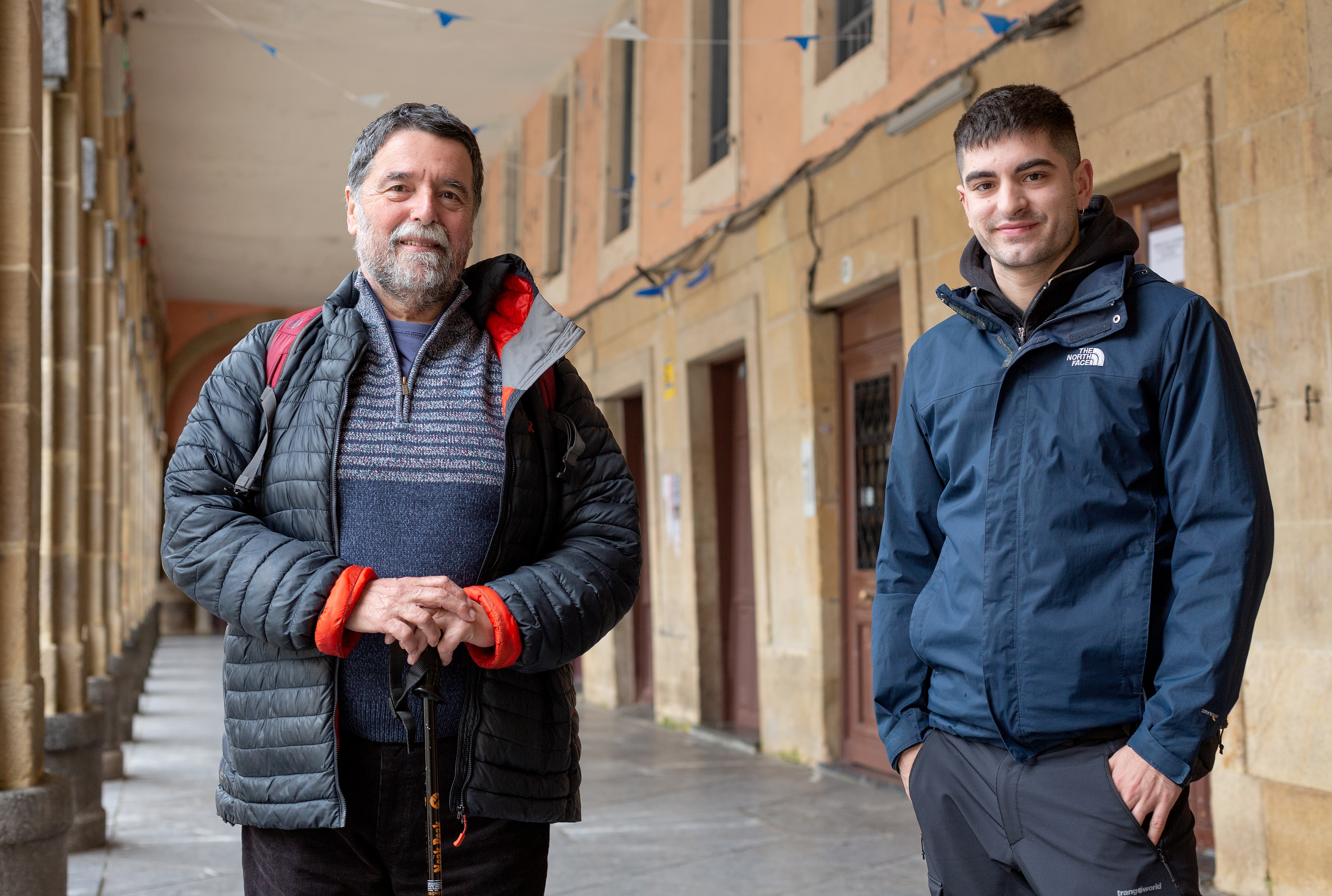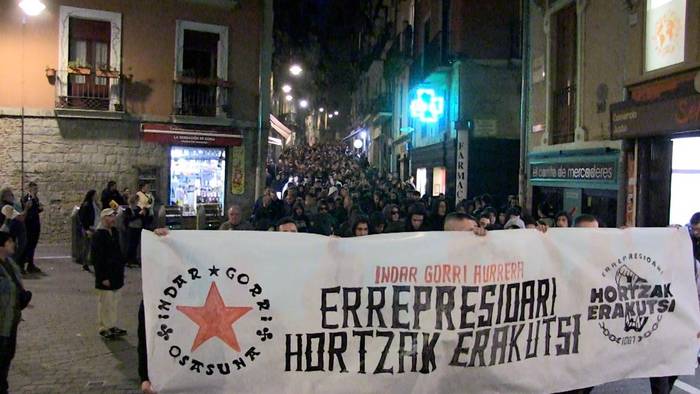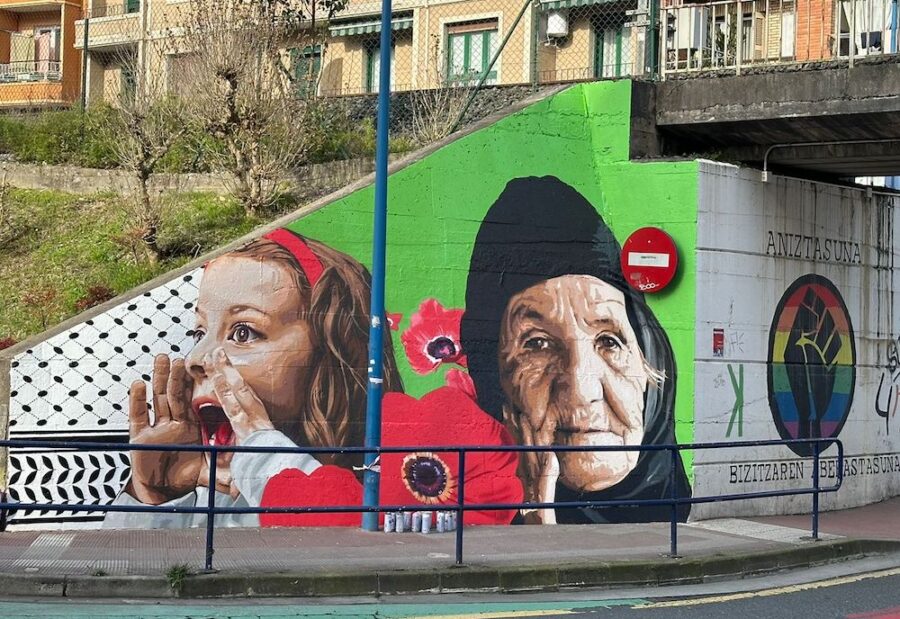The Ombudsman of Vitoria-Gasteiz agrees with ARGIA: Recording the police is a right
- A local Vitoria-Gasteiz police threatened to ban an ARGIA journalist from taking pictures of a police operation on 7 May 2020. ARGIA lodged a complaint with the Ombudsman of Vitoria-Gasteiz. The Trustee gives reason to ARGIA: Recording the police is a right of all citizens, not just journalists. In the response to the Trustee, the Municipal Police recognizes the journalist's right. According to the Municipal Police, “there could be, in some cases, officers who might be wrong”, but no action was taken against the Municipal Police because “there had been no disciplinary infringement”.

The Local Police assured ARGIA journalist Zigor Olabarria that the capture of images was illegal and threatened him with a crime of disobedience and took his phone off if he did. The other three municipal police officers present did not direct their colleague. Later more policemen arrived and eventually the officer who led the operation recognized him as a “journalist.”
In June ARGIA included a petition in the Union – Ombudsman for Citizens of Vitoria-Gasteiz, equivalent to an Ararteko at the municipal level. The trustee was asked, among other things, to assess what happened and to clarify which citizens and journalists we have the right to take pictures of the police in general. ARGIA recently received the reply dated 29 December.
Late reply and in Spanish
It has been half a year since we registered the request in June. According to the report, "shortly thereafter" the Trustee asked the Municipal Police for appropriate explanations. “Since several years have passed without a response since then, we have ratified the petition once again in November and have recently sent it to us.”
On the other hand, the Trustee asks “forgiveness” of the ARGIA journalist who registered the procedure, since the response of the Municipal Police that is attached “is written in Spanish, even though our request was made in bilingual”. He adds that he will “alert” those in charge of the department.
Recording the police, the right of all citizens
The Trustee’s answer is forceful: “It’s true that the information you’ve given you and its consequences were not fair, because it’s clear that you, as a journalist, have the capacity and right to take photos.” The Trustee ' s report states that the Municipal Police Security Department itself recognizes this right. This is confirmed by the letter signed by the Director of Citizen Security, Javier Sáez, in response to the Receiver: “The person accredited as a journalist, at first, an agent of the Municipal Police who was there tells him not to record it. A head of the intervention directs this agent and informs the journalist that in the exercise of his activity he has the capacity to record municipal agents, while informing him of his responsibility in the taking of images and their subsequent use”. The Municipal Police statement makes no reference to the aggressive and threatening attitude of the Municipal Police.
Syndic: “It’s true that the information you’ve given you and its consequences were not fair, because it’s clear that you, as a journalist, have the capacity and right to take photos.”
ARGIA asked the Trustee to clarify, not just the journalist, whether any citizen has the right to take pictures of the police who are working in a public space. The Trustee recalls what the Moorish Law says and the internal instruction issued in this regard by the Secretariat of the State of Security, in conclusion: “Everyone can photograph, but with certain limitations: not putting safety at risk and not making unfair treatments.” Therefore, “it will be decided on the basis of subsequent use if there is a complaint”. That is what we have defended for years various independent media and popular movements, so we recommend that the Police identify us by taking images, but without stopping recording or photographing
On the formation of the Municipal Police in basic rights
ARGIA also asked the Trustee to ask the Municipal Police if he analyzed the event and opened an internal procedure, and “what training municipal police receive on the right of citizenship to take their images on the street”.
With regard to the events of 7 May, the Director of the Department of Security said: “As in any police intervention, municipal police can be wrong. For this reason, it is always necessary for a responsible person to be in charge of supervising important interventions”. Journalists and citizens would be safer than a “responsible” who does “supervisory tasks” of rights, if all the police guaranteed them to us, and for this we believe that training is essential. Even more so when repressive attitudes on the part of the various police forces have been repeatedly denounced, both to journalists and to citizens.
Municipal Police: "After talking to the officer who was there, he went to the place where he agreed not to take any disciplinary action against the agent."
The head of the Municipal Police has responded generically to the specific question about the training they receive on the right to take police images: “The Municipal Police are trained in all possible areas and subjects, with the possibility of going to the person responsible to solve the doubts that arise in daily tasks”. The question we proposed in May is going to follow in the air: Was the agent who assured the journalist that the taking of images was illegal, deliberately talking about ignorance or lying? Either possibility would be serious.
Finally, the Local Police reports that no action has been taken against it: “After talking to the officer who was there, he went to the same place where it was agreed not to take disciplinary action against the agent, as there was no disciplinary infringement.”
The attempt to ban a fundamental right, the threats to impose such a ban, the incorrect information on legislation, the aggressive attitude, the lack of intervention of the police members accompanying him in the situation ... We are not generally in favour of punitive measures in this House, but beyond taking action against the Municipal Police, we believe that more gravity must be recognised than has been done.

Record Police
The police often do not want to witness their actions – just as the authorities and the powerful do not want transparency about their own activity – and, as a result, abuses and illegal behaviour are repeated both in the world and in the Basque Country, against journalists and citizens. In ARGIA we have had to face the same attempts at banning several times, fortunately we have all won, both on the street and in the courts.
On the same day that we registered the petition in the union, Hala Bedi recorded another one in the CAV's Ararteko, as an ertzaina had forbidden him to take pictures of a journalist from that medium in the eviction of the feminist okupado space Talka. Hala Bedi has also gone to court. During the general strike on 30 January 2020, the Local Police of Vitoria-Gasteiz violently detained another journalist from the same media and removed the camera. Even the political leaders of the Municipal Police did not see a negligible attitude at the time. The examples are more, just in Vitoria-Gasteiz. If journalists are thus opposed, what will they not do against the rest of the citizens?
Unauthorized practice has turned yesterday’s ‘crimes’ into rights recognized as today, and even if the law allows, unenforceable rights are lost
We have said so many times, last time in May with Hala Bedi: we will continue to report, we will report to the police when necessary. As a journalist and as a citizen. In a just society, it should be normal for citizens to have the possibility and the habit of controlling the work of those who say to their service; at this moment, it is a right to fight. In this case, and for the time being, the right recognized by law. We must also take advantage of it, but the key is, as always, in practice, because the practice of law comes from the use of law and not the other way round: history shows us that unauthorised practice turned yesterday's "crimes" into rights recognised as the current ones – such as the right to strike, expression or association – and it also shows us that rights that are not practised are lost.
Steilas considers out of place the effort of the Rectorate of the UPV/EHU to prevent the participation of a person through a communication at the congress on Sovereignty(s) held recently in our university. We do not understand the attempt to obstruct the academic activity of a... [+]









